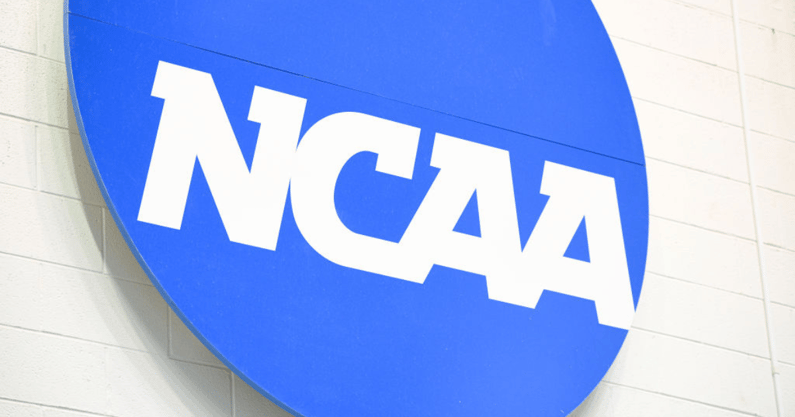College football expert gives latest intel on NIL, athletes being considered employees

With the introduction of NIL without nationally enforced legislation, along with the growing popularity of the transfer portal, many have titled the offseason “free agency” and bemoaned the NFL-like structure. However, lawsuits against the NCAA continue making the case that not only should athletes make money, they should be considered employees of the university.
During an appearance on the Paul Finebaum Show, Stewart Mandel provided an update on a seemingly small lawsuit against the NCAA which could have a big impact on the future of NIL legislation and the landscape of college sports.
“It’s a flying under the radar lawsuit,” said Mandel. “Johnson v. the NCAA was filed by a former Villanova football player and some other athletes arguing. And it’s not a new argument, we’ve seen it play out in various different ways. Remember Northwestern players, there was an attempt to unionize a few years ago. The notion is that our sports athletes are employees.
“And I believe this lawsuit is in the very early stages of working its way through the process. But the SEC filing a brief in support of it, that’s not surprising because this would be – you think NIL is causing headaches for college athletics – the athlete’s being classified as employees and a court decision requiring that is the single biggest hurdle or challenge that they are facing right now. And you saw a few weeks ago Greg Sankey and George Kliavkoff, the commissioner of the Pac-12, flew to D.C. to meet with senators and the headline out of that was about NIL and hoping that congress will issue some regulations on that front, but what it was really about is trying to head this off.”
Top 10
- 1New
Blurred out QB
Vols protect INT thrower
- 2Hot
Top 25 WR units
Ranking the pass catchers
- 3
OLB rankings
Top 25 in college football
- 4
College Football Playoff
Ranking Top 32 teams for 2025
- 5Trending
Top 25 College QBs
Ranking best '25 signal callers
Get the Daily On3 Newsletter in your inbox every morning
By clicking "Subscribe to Newsletter", I agree to On3's Privacy Notice, Terms, and use of my personal information described therein.
The future of college sports
In continued conversation with Paul Finebaum, Stewart Mandel discussed the current belief among high-ranking college administrators as it relates to the NIL battle and stopping athletes from gaining employment benefits through lawsuits.
“I think that people who are realistic in college athletics know that they’ve already lost the fight on NIL and they need to be prepared for this,” said Mandel. “Because this is the next logical step right now that athletes can make money from their name, image and likeness, the next frontier would be if they can actually be paid employees.”
As lawsuits continue to pile up against the NCAA, conference-wide legislation on these issues has become a topic of discussion, while commissioners continue calling for the federal government to step in. Given how new the current landscape is, there is talk about a “sustainable model” which must be reached.